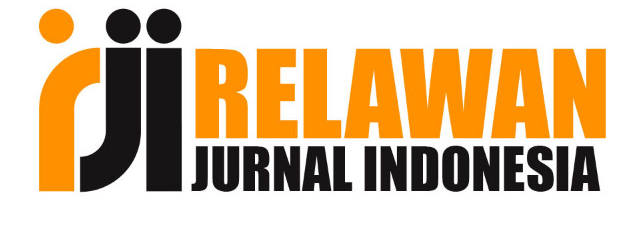Pengaruh Religiusitas, Sikap, Norma Subjektif, dan Kontrol Perilaku terhadap Niat Membeli Produk Kosmetik Halal di Fakultas Ekonomi dan Bisnis Universitas Ahmad Dahlan Yogyakarta
DOI:
https://doi.org/10.36982/jiegmk.v11i1.1061Abstract
ABSTRACT
This study aims to determine the effect of religiosity, attitudes, subjective norms and behavioral control on the intention to buy halal cosmetic products on Muslim students at the Faculty of Economics and Business, Ahmad Dahlan University, Yogyakarta. This research is a survey research using a questionnaire as an instrument. For testing the instrument using a test of validity and reliability. As for the technique of data analysis using multiple linear regression methods, because the variables used are more than two variables, with the F test and t test. The results of the study showed that the religiosity variable (X1) did not significantly influence the intention to buy halal cosmetics, this was indicated by the significance value>α(0.24)>0.05) attitude (X2) had no significant effect on the intention to buy halal cosmetics, this is shown from the significance value>α(0.509>0.05), subjective norm (X3) does not affect the intention to buy halal cosmetics, this is indicated from the significance value>α(0,250>0.05), behavioral control (X4) influences on the interest in buying halal cosmetics, this is indicated by the significance value<α(0,000<0.05). Simultaneously the influence of religiosity, attitudes, subjective norms, and behavioral control on the intention to buy halal cosmetic products at the Faculty of Economics and Business Ahmad Dahlan University has a significant effect on the intention to buy halal cosmetics (Y). This is evidenced by the calculation of the F test of 28,135 with a significance of 0,000.
Keywords: Religiosity, Attitude, Intention, Halal Cosmetics ABSTRAK
Penelitian ini bertujuan untuk mengetahui pengaruh religiusitas, sikap, norma subyektif dan kontrol perilaku terhadap niat membeli produk kosmetik halal pada mahasiswi muslim di Fakultas Ekonomi dan Bisnis Universitas Ahmad Dahlan Yogyakarta. Penelitian ini merupakan penelitian survei dengan menggunakan kuesioner sebagai instrumennya. Untuk pengujian instrumen menggunakan uji validitas dan reliabilitas. Sedangkan untuk Teknik analisis data menggunakan metode regresi linier berganda, karena variabel yang digunakan lebih dari dua variabel, dengan uji F dan uji t. Hasil dari penelitian menunjukkan bahwa variabel religiusitas (X1) tidak berpengaruh signifikan terhadap minat beli kosmetik halal, hal ini ditunjukkan dari nilai signifikansi>α(0,24>0,05) sikap (X2) tidak berpengaruh signifikan terhadap minat beli kosmetik halal, hal ini ditunjukkan dari nilai signifikansi>α(0,509>0,05), norma subjektif (X3) tidak berpengaruh terhadap minat beli kosmetik halal, hal ini ditunjukkan dari nilai signifikansi>α(0,250)>0,05), kontrol perilaku (X4) berpengaruh terhadap minat beli kosmetik halal, hal ini ditunjukkan dari nilai signifikansi<α(0,000<0,05). Secara simultan pengaruh religiusitas, sikap, norma subjektif, dan kontrol perilaku terhadap niat membeli produk kosmetik halal di Fakultas Ekonomi dan Bisnis Universitas Ahmad Dahlan berpengaruh signifikan terhadap niat membeli kosmetik halal (Y). Hal ini terbukti dengan perhitungan uji F sebesar 28,135 dengan signifikansi 0,000.
Kata Kunci:Â Religiusitas, Sikap, Niat, Kosmetik Halal
References
Adhilla Fitroh, Dyah Fitriani. Dan Deny Ismanto. 2013. Modul Praktikum Statistik 2. Yogyakarta. Fakultas Ekonomi Universitas Ahmad Dahlan. 19-20.
Ajzen, Icek. 1991. The Theory of Planned Behavior. Organizational Behavior and Human Decision Processes vol 50, pp 179-211.
Ajzen. Icek. 2005. Attitudes, Personality, and Behavior. Open University Press
Alam, Syed Shah, et.al. 2012. Is Religiosity an Important Factor In Influencing The Intention to Undertake Islamic Home Financing in Klang Valley. World Applied Sciences Journal 19 (7) : 1030-1041.
Arikunto, Suharsimi. 2013. Prosedur Penelitian Suatu Pendekatan Praktik. Jakarta : Rineka Cipta
Aziz, Nooren Noor Abd. Wahab, Eta. Understanding of Halal Cosmetics Product :TPB Model.
Burhanuddin. 2011. Pemikiran Hukum Perlindungan Konsumen dan Sertifikat Halal. Malang : UIN Maliki Press.
Dominanto, Nedi Nugrah. 2008. Perbedaan Sikap terhadap Iklan, Merek dan Niat Beli Konsumen pada Iklan dengan Fear Appeal Tinggi dan Rendah pada Partisipan Wanita. Jurnal Ekonomi dan Bisnis 2 (2), h: 67-75.
Fishbein, Martin dan Icek Ajzen. 1975. Belief, attitude, intention and behavior an introduction to theory and research. London: Addiso Wesley Publishing Company.
Ghozali, Imam. (2002). Pengaruh Religiositas terhadap Komitmen Organisasi, Keterlibatan Kerja, Kepuasan.
Kerja dan Produktivitas. Jurnal Bisnis Strategi. Semarang: Universitas Diponegoro Semarang.
Hair, J.F.Jr. et. al. 1998. Multivariate Data Analysis, (5th
Edition). Upper Saddle River, NJ : Prentice Hall.
Kardes, R. Frank et.al. 2008. Cunsomer Behavior. USA:
South-Western Cengage Learning.Kotler, Philip. 1995. Manajemen Pemasaran. Jakarta : Penerbit Salemba Empat.
Kotler, Philip., dan Kevin Lane Keller. 2008. Manajemen Pemasaran. Jakarta: Indeks.
Kotler, Philip., dan Kevin Lane Keller. 2009. Manajemen Pemasaran. Jakarta: Indeks.
Marliani, Rosleny. 2013. Hubungan Antara Religiusitas dengan Orientasi Masa Depan Bidang Pekerjaan pada Mahasiswa Tingkat Akhir. Jurnal Psikologi, volume 9, nomor 2, Desember.
Minkler, Lanse., dan Metin Cosgel. 2004. Religious Identity and Comsumption, University of Connecticut.
Naini, Rohmatus. 2015. Wellnes Ditinjau Dari Religiusitas Mahasiswa Universitas Negeri Yogyakarta. Jurnal Bimbingan dan Konseling, Edisi 4, Tahun ke 4.
Nasrullah, Muhammad. 2015. Islamic Branding, Religiusitas dan Keputusan Konsumen Tehadap Produk. Jurnal Hukum Islam (JHI), volume 13, nomor 2, Desember 2015 : 79-87.
Nawari. 2010. Analisis Regresi dengan MS Excel 2007 danSPSS17.Jakarta: PT.ElekMediaKomputindo.
Purwanto, M. Ngalim 2007. Psikologi Pendidikan. Cetakan Pertama. Remaja. Rosdakarya. Bandung.
Schiffman, Leon, L. Lazar Kanuk. 2008. Perilaku Konsumen. Jakarta: PT. INDEKS.
Schiffman, Leon G, and Leslie Lazar Kanuk. 2000. Consumer Behavior 7e, Int Edition. New Jersey: Prenhallindo.
Sudrajat, Ajat, dkk. (2009). Din Al Islam: Pendidikan Agama Islam di Perguruan Tinggi Umum. Yogyakarta: UNY Press.
Sugiyono. 2015. Metode Penelitian Pendidikan, Pendekatan Kuantitatif, Kualitatif, dan R & D. Bandung: Alfabeta.
Peraturan Kementrian Kesehatan No. 445 Tahun 1998. http://id.wikipedia.org/wiki/LPPOM_MUI
ISSN PRINT : 2089-6018 ISSN ONLINE : 2502-2024
Downloads
Published
How to Cite
Issue
Section
License
Authors retain copyright and grant the journal right of first publication with the work simultaneously licensed under a Creative Commons Attribution License that allows others to share the work with an acknowledgement of the work's authorship and initial publication in this journal.
Â
Authors are permitted and encouraged to post their work online (e.g., in institutional repositories or on their website) prior to and during the submission process, as it can lead to productive exchanges, as well as earlier and greater citation of published work.
Â
LP2M Indo Global Mandiri University has the right to multiply and distribute the article and every author is not allowed to publish the same article that has been published in this journal.










